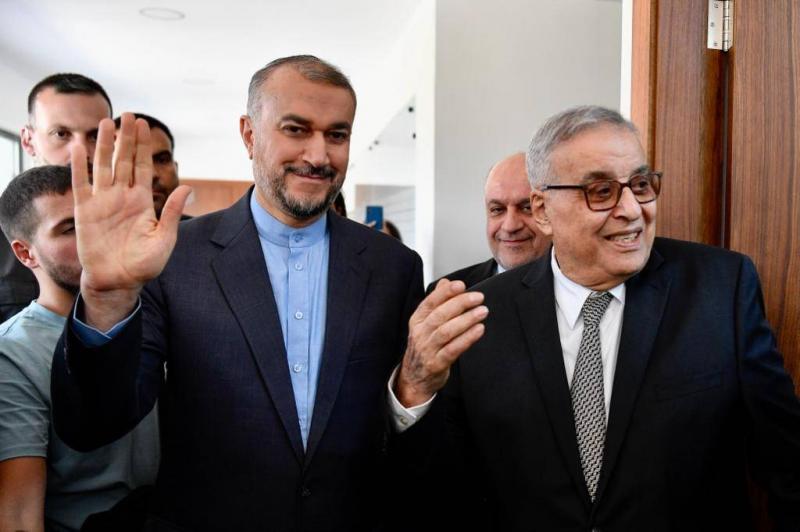Iranian Foreign Minister Hossein Amir Abdollahian stated in a press conference following his meeting with Lebanese Foreign Minister Abdallah Bou Habib that "Iran rejects foreign intervention in the affairs of other countries, including Lebanon, and the election of a president is an internal Lebanese matter." He noted that "Lebanese leaders possess the necessary competence and wisdom to reach an agreement to resolve the issue of electing a president." He continued, reaffirming Iran's readiness to enhance economic cooperation with Lebanon, and reiterated that Iranian companies are prepared to solve Lebanon's electricity problem. He emphasized that there has always been an active commercial sector and many business opportunities in Lebanon throughout history. Abdollahian added that Lebanon holds an important position in the region, and any country's approach towards cooperation with it would benefit that country, Lebanon, and the entire region.
Moreover, the Iranian minister stated, "There is no doubt that Iran rejects foreign intervention in the affairs of other countries, including Lebanon, and the issue of electing a president is an internal Lebanese matter. We are confident that Lebanese leaders have the competence and wisdom necessary to reach an agreement to resolve this issue. There is no doubt that external parties and international actors can support the consultation and discussion process among Lebanese forces." In this regard, he emphasized that they are in Beirut today to loudly announce that the Islamic Republic of Iran will continue its strong support for Lebanon, its people, army, government, and resistance, and it seeks nothing but good for Lebanon.
Abdollahian concluded by calling on Lebanese officials and political parties to accelerate reaching an agreement for the election of a president and the formation of a government.
After Abdollahian's departure, Bou Habib spoke to reporters in response to a question about the renewal of UNIFIL forces, stating that "UN decisions are binding for Lebanon, and we accept the last decision issued by them. Our concern is stability and peace in the south." He noted that "the decision made last year was a convincing seventh chapter," and they wanted to revert to Chapter Six, which speaks of cooperation between the host state and the international force. Therefore, they proposed a formula for coordination with the Lebanese state.
He added, "We did not receive everything we wanted, and this formula was not adopted because the Lebanese proposal faced opposition from several countries, while it received approval only from Russia and China." The decision last year called for absolute freedom, but today the new decision 2695 has been amended to retain absolute freedom, while implementing the Headquarters Agreement that stipulates cooperation with the host state.
In response to a question about the delay resulting from changing the draft resolution from the blue version, he explained that this version is generally considered final, but the penholder, namely France, modified the printed copy in blue to prevent any veto against the decision, and to clarify that this does not mean the end of UNIFIL's mission. Bou Habib clarified that the Lebanese army does not accompany every UNIFIL patrol but only accompanies pre-agreed patrols in certain villages.
He remarked that UNIFIL acted last year as if it had not changed the rules of the game at all, which was commendable. Regarding the Israeli presence in the northern part of Ghajar, Bou Habib stated: "The outskirts of the Mari town are Lebanese, although Ghajar is Syrian, and the encroachment began under the cover of Israelis for citizens who now hold Israeli citizenship." He denied having discussed this matter with Hochstein, saying, "Rather, we discussed the demarcation of the borders set in 1949." He added that Hochstein promised to discuss this matter with the Israelis, and if they agree, his country will facilitate the issue. Bou Habib concluded by expressing concern over a potential new economic influx from Syria to Lebanon due to the situation there.
Abdollahian also met with President Nabih Berri at the second presidential palace in Ain al-Tineh, in the presence of the Iranian ambassador to Beirut, Mr. Mojtaba Amani, where they reviewed the general situation and the latest political developments in Lebanon and the region.




